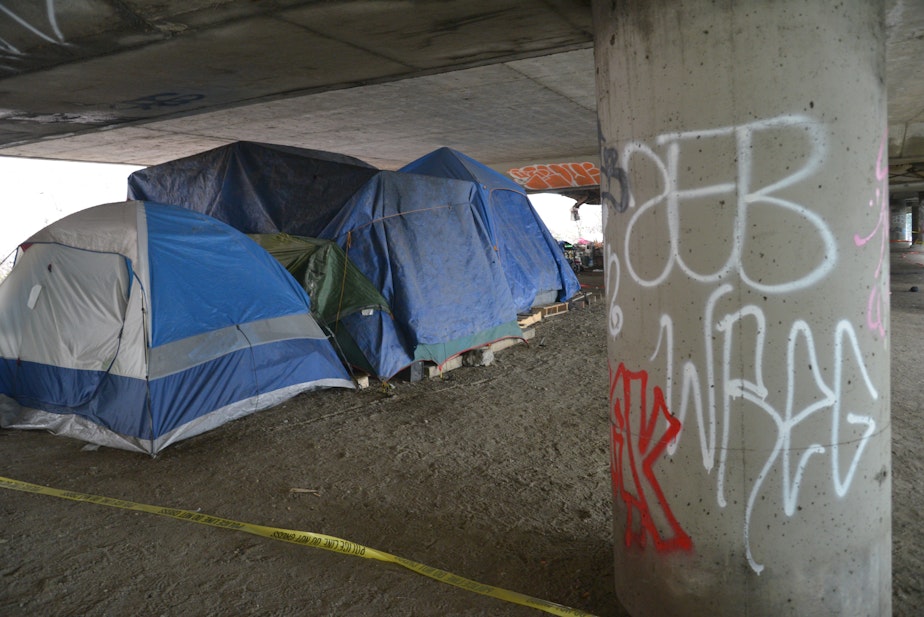Seattle destroys personal items during homeless camp sweeps, advocates say

Homeless advocates and two homeless individuals are suing the City of Seattle and the Washington State Department of Transportation over how they treat people's possessions when they clear out homeless encampments.
The plaintiffs — including the Episcopal Diocese, Real Change newspaper, and homeless individuals Brandie Osborne and Lisa Hooper — say the city and WSDOT are violating homeless people's constitutional rights by seizing, and often destroying, possessions during sweeps.
Property is seized and destroyed “without adequate and effective notice, an opportunity to be heard, or a meaningful way to reclaim any property that was not destroyed,” the lawsuit states.
The lawsuit calls the city and state’s practices “unnecessarily cruel” and says they’re illegal because they deprive homeless individuals of their right to protection from unreasonable search and seizure, and the right to protection from invasion of homes and privacy.
“Imagine if government agents came to your home and carted away everything you own, without any warning and without telling you how to get back whatever they didn’t throw out,” said Emily Chiang, ACLU of Washington's legal director.
ACLU of Washington spokesman Doug Honig said the possessions seized in sweeps, or camp cleanups, are often crucial to the survival of people living on the streets.
The lawsuit says plaintiff Lisa Hooper lost legal paperwork.
"Too often government treats homeless people in practice as if they don't have the same rights as everybody else," Honig said. "Somebody living outdoors has the same right to their property as somebody living in a house does."
In a statement, WSDOT said safety remains their number one priority.
“We understand that homelessness is a major issue affecting many across the state. However, those camping on WSDOT property are putting both themselves and others at risk. In addition, many of these areas are typically inaccessible to service providers.
Seattle's city attorney's office said they have not yet received the lawsuit.
This is the latest in a heated and long-running debate between homeless advocates and the City of Seattle about the clearing of homeless encampments.
In 2016, advocates proposed legislation to give greater protections to homeless people. That helped prompt a review of city protocols and the proposal of updated protocols from the Seattle mayor’s office.
Thousands of homeless people live on the streets in Seattle, many in unauthorized encampments.
